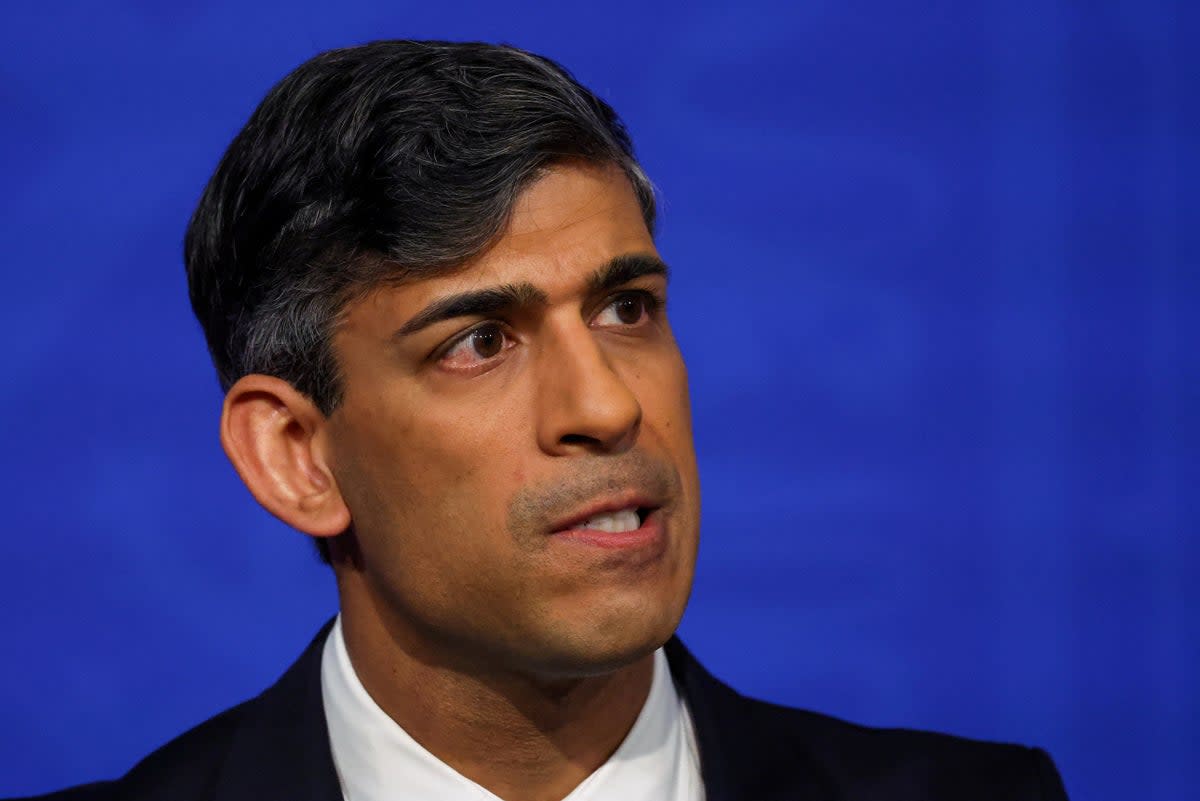Liam Fox: Replacing Rishi will rile Tory voters even more

The results of the local and police and crime commissioner elections in England were supposed to follow a clear narrative – that Labour was on course for a massive parliamentary majority in a general election, and that Rishi Sunak’s premiership would be on the rocks, with rebel factions waiting to displace him.
The fact that these predictions have not been sustained poses the question “Why not?” One of the major factors is the analysis of the results themselves.
Prof Michael Thrasher’s conclusion – that, based on these results, Labour will be the biggest party in parliament but well short of a parliamentary majority – has created a very different political environment.
The idea of taking on a Labour Party that has a nine-point lead and has polled 10 per cent short of its own opinion-poll ratings has made many Conservatives believe that the election is still all to play for.
This is reinforced by the fact that those who have been out on the doorsteps know this is not the 1990s. There is no great love for Labour among potential swing voters, and even less enthusiasm for Keir Starmer as prime minister. The low turnout across the whole range of last week’s elections reinforces this view.
What will really spook Labour MPs, however, is the thought that this is not a repeat of the run-up to the 1997 election, but the ghost of the 1992 “Labour victory that never was” coming back to haunt them. The trouble with Muslim voters in their heartlands will also give many Labour MPs the jitters.
How should Conservatives react to this political picture? First, a rather obvious thing to be said is that there can be no question of any challenge to the prime minister’s leadership of his party.
Indeed, one of the factors that stopped potential voters from coming out to vote for the Conservatives was their deep irritation at the apparent splits in the Conservative Party and the untrammelled egos of a few individuals who seem to have little regard for the party’s wider wellbeing.
So, discretionary silence from the usual suspects would be of great benefit in allowing the government’s record to be the only voice heard in the run-up to the general election.

After all, the government has much to be proud of. Let’s remember that it all began with a note left by Labour’s outgoing chief secretary to the Treasury, Liam Byrne, in 2010, declaring: “I’m afraid there is no money.” He wasn’t kidding. Gordon Brown’s government left us with the highest deficit in peacetime, equivalent to 11 per cent of GDP.
Had David Cameron and George Osborne not got the public finances back under control, and the deficit to under 2 per cent, Boris Johnson would not have been able to spend £405bn during the pandemic – and nor would Rishi Sunak as chancellor have been able to afford the furlough scheme, which protected 11.7 million jobs.
Had these measures not been taken, then in turn, Britain would not have recovered faster after the pandemic than either France or Germany, and Jeremy Hunt would not have been able to spend over £70bn supporting households following the inflationary shock that came from Vladimir Putin’s invasion of Ukraine.
The government also has a great record on education, when more than 2 million more pupils in England are in good or outstanding schools than in 2010.
While scores in subjects such as maths have improved dramatically in England, the opposite has occurred in Labour-controlled Wales, where the reading age is more than six months behind pupils in England.
Let’s remember that Labour Wales is what Keir Starmer said would be his template for a Labour government in the UK.
In trade, since Brexit, Britain has surged to be the fourth-biggest exporter in the world, overtaking France, the Netherlands and Japan.
With the government’s immigration law on Rwanda firmly in place, and the Irish government’s timely assessment that fear of deportation will drive illegal migrants to Ireland, the scene is set not only for much tougher controls but for destroying the economic model that drives the vile and evil people-traffickers whose actions result in deaths in the English Channel.
As the Conservatives return to being a party of strong defence, with pledges to increase defence and security spending that Labour refuses to match, memories will be stirred of how, at two elections, Starmer urged voters to put Jeremy Corbyn into No 10 – a man who believed in one-sided nuclear disarmament in one of the most dangerous periods in recent history.
None of this is to suggest that last week’s elections weren’t a great disappointment to the Conservatives, but opposition parties (and many Conservative MPs) need to realise that, as the economy continues to improve, Labour may be beyond its high-water mark, just as Neil Kinnock was in 1992.
Rallying behind the prime minister, with ruthless message discipline and a narrative that where Labour describes the problems, Conservatives deliver solutions, could yet be the prelude to the biggest political turnaround in decades.
Sir Liam Fox is the Conservative MP for North Somerset and a former secretary of state for international trade and defence


